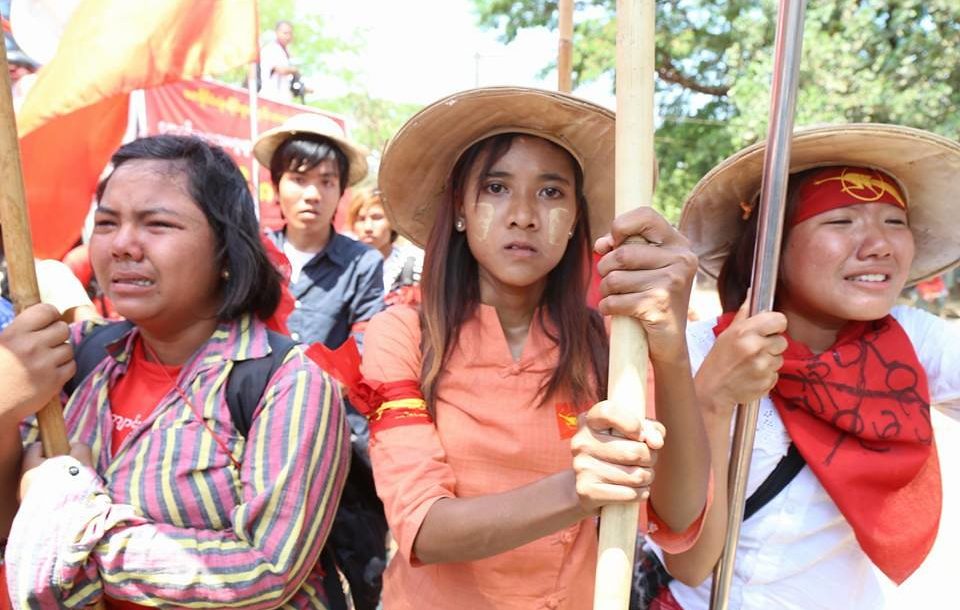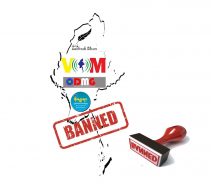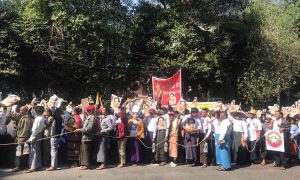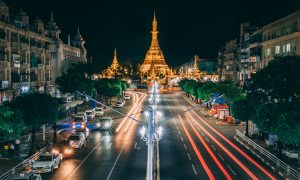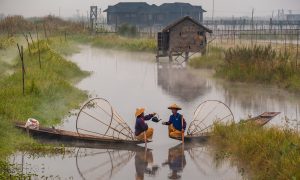In Myanmar, a nascent democracy, there are many institutional shortcomings impeding the functioning of multi-party democracy: the military remains independent of civilian control, the independence of the judiciary is far from perfect, civil rights have been eroded in many areas, and millions of ethnic and religious minorities are excluded from political participation and full citizenship (most importantly the million or so Rohingya former-residents of Myanmar, who now reside in Bangladesh or elsewhere).
Recent controversies around contradictions between the 2008 Constitution and Union Government Law on election campaigning demonstrate that, especially in a political system like Myanmar’s, democratic norms like institutional forbearance may be more important that strict adherence to the letter of the law..
Myanmar’s democracy is highly majoritarian, meaning it provides many advantages to the party able to win a majority of seats (far disproportionate to the margin of victory). The governing National League for Democracy is drawing on these advantages to give itself the best chance of winning in November. However, in doing so it risks violating the informal norm of fairness.
On July 1 2020, Myanmar’s Union Election Commission announced November 8 2020 as the polling day for the general election. On the same day, the Commission issued another announcement stating that the members of the union government, including ministers, deputy ministers, the Chief Justice and other judges of the Supreme Court, the attorney general, the auditor general, the members of the Constitutional Tribunal and the members of the Union Civil Service Board (UCSB) can participate in the political campaigns performed by the respective political parties since 1 July.
In the UEC’s statement there are four activities described—party campaigns (election related), local organizing (election related), electoral talks and voter campaigns for elections—which candidates are permitted to engage in. In the sections describing activities permitted for government ministers and senior civil servants, only political party campaigns and local organizing are included. The difference between these four have not been clarified by the UEC, so it is understood that the government ministers and senior civil servants will be able to conduct the electoral campaigns in the name of NLD for many weeks in advance of candidates from other parties. Other parties will have to wait for the official date of electoral talks and voter campaigns. This gives the NLD a clear and unfair (although lawful) advantage in election campaigning over other parties.
On 2 July, the NLD announced the chairwoman of the party, State Counsellor Daw Aung San Suu Kyi, and President U Win Myint, will participate in the party’s campaigns.
According to section 64 of the 2008 Constitution, the president and vice presidents are constitutionally prohibited from taking part in activities run by their political party. Moreover, constitution prevents members of cabinet in Myanmar from holding a position in cabinet and a seat in the legislature simultaneously, in order to ensure the separation of powers between the cabinet and the parliament.
Contrary to the constitutional provisions, the Union Government Law, enacted in 2010, allows cabinet members to join political party campaigns as soon as an election date is declared. So far, the Union Government Law has been treated as superior to the Constitution.
While the NLD is now enthusiastic about senior ministers campaigning, during the lead-up to the last general elections in 2015, the NLD complained when former president U Thein Sein was spotted appearing at public rallies organized by his party, the Union Solidarity and Development Party.
On 2 November, 2015, the NLD requested the then-Union Election Commission to take action against U Thein Sein for his involvement in campaign activities. Since then, no opposition parties have reported the NLD to the UEC for violation of the constitution yet. However, members of some political parties have criticised the UEC for allowing senior government members to undertake campaign earlier than others.
The internationally recognized consensus that governing political parties should be constrained from taking advantage of their incumbency or using state resources for electoral campaigns. According to the Bangkok Declaration on Free and Fair Elections (2012), the government party must be prohibited from the use of state budget and other resources for its own benefit in order to achieve a free and fair election. It is not anti-democratic for the cabinet members to participate in the activities of their own political parties. However, it is very dangerous for democracy when constitutionalism—moderating the majoritarian effects of democracy through an independent judiciary, rule of law, impartiality in administrative institutions—is too weak to check and balance abuses of power by the incumbent party during elections. Since the Union Election Commission in Myanmar is formed by the president and has no fixed term, it is difficult to see the commission in principle as a non-partisan arbitrator for the electoral disputes and management. Against this backdrop, together with the contradictions in laws and lack of institutional forbearance, the electoral system in Myanmar is vulnerable to the abuses of state resources by the incumbent party for its own partisan benefits.
COVID-19 gives cover for threats to freedom of information and expression in Myanmar
An ongoing crackdown on freedom of expression is impacting the access to essential information.
The NLD’s use of the political capital of the State Counsellor in its political campaign clearly demonstrates that the elite of Myanmar do not subscribe to institutional forbearance, in exercising their legally mandated powers. This may hamper the democratic spirit of equal participation and contestation.
There is another phenomenon proving a lack of the forbearance in Myanmar’s politics. The Telecommunications Law, the Peaceful Assembly and Peaceful Procession Law and the Law Protecting the Privacy and Security of Citizens have been the top three laws used to prosecute civilians under the NLD government. Despite calls from both domestic and international civil society organizations to abolish section 66(d) of the Telecommunications law and amend the Peaceful Assembly and Peaceful Procession Law, there have only been a few small changes which haven’t altered their repressive potential.
Both post-SPDC legislatures have adopted these laws in order to guarantee the constitutionally entitled rights and liberty of citizens. Although it is not illegal to arrest and file lawsuits against the citizens under these laws to do so shows the government’s unwillingness to tolerate a free press and civil liberty. Further demonstrating the government’s lack of forbearance, as in the case of electoral campaign, the arrests (although lawful) undermine democratic values. Consequently, a level playing field among the political parties is denied by the case of electoral campaign, are civil liberties are is deteriorated in the latter case.
The first civilian government elected by a free and fair election since 1962 has not exemplified institutional forbearance. Democracy is imperilled when the letter of the law is prioritised over the spirit of the law. Persistent adherence to the written rules makes Mynamar’s democracy vulnerable to authoritarian tendencies which undermine mutual political toleration.
 Facebook
Facebook  Twitter
Twitter  Soundcloud
Soundcloud  Youtube
Youtube  Rss
Rss 